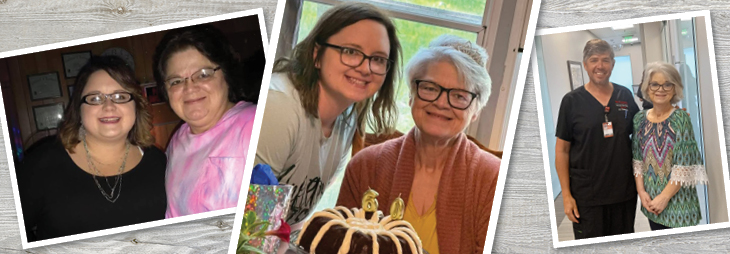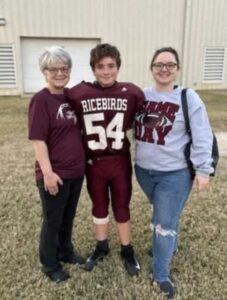
For Angie and her daughter Shae, bariatric surgery was more than a procedure. This was the start of a whole new chapter filled with energy, confidence and shared joy.
Four years ago, Angie made the decision to undergo gastric bypass surgery at the Bariatric & Metabolic Institute. A year later, Shae followed in her footsteps with the gastric sleeve. Both procedures were performed by Dr. JJ Tucker, and together they began a journey that has transformed their health and lives.
“Part of my motivation was to be in better health for not only myself but my beautiful daughter and my grandson,” Angie says. “We support each other in everything.”
This year, Angie turned 60. Shae hosted a birthday party for her mom that was filled with laughter, loved ones and a kind of joy Angie hadn’t felt in years. “It was the best birthday party I’ve had in my life,” she says.
Both women are now off their blood pressure medications. Angie is no longer diabetic and doesn’t need cholesterol meds. She’s traveling more, walking with ease and enjoying every moment with her family — including an upcoming trout fishing trip with grandson Jase.

“We’re able to do things with my grandson that had become harder and harder each pound we gained,” Angie says. “Now, we have so much more energy — physically and emotionally.”
From everyday activities to memorable milestones, Angie and Shae are living proof that change is possible and that the journey can be even more meaningful when you take it together.
“If you’re thinking about having surgery,” Angie adds, “go for it. You will not regret it. But you may regret not doing it.”
This Mother’s Day, we celebrate Angie and Shae — two strong women who chose health, chose family and chose to live fully.
Discover more about bariatric surgery and what options are available to you for your weight loss journey.